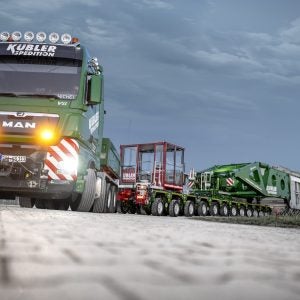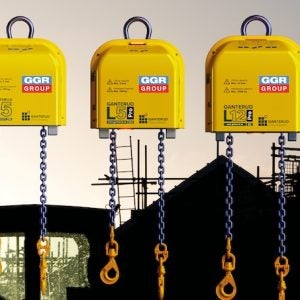The UK Health and Safety Executive (HSE) will take no steps to bring a prosecution over the collapse of a Wolff 320 BF tower crane at Canada Square in London in May 2000 in which three workers were killed.
The HSE has decided that there is insufficient evidence to support enforcement action, and it is not in the public interest to bring a prosecution.
Michael Whittard, an erection supervisor, Martin Burgess an erector, and Peter Clark, a crane driver, were part of a team using a large ‘climbing frame’ incorporating a hydraulic lifting device to raise the height of the tower crane when the incident occurred. They fell more than 120m when the top of the crane and the climbing frame overturned as they were approaching the end of a weekend of climbing operations on this and a sister crane on the site. Two other members of the crew escaped into the tower of the crane and survived.
In June 2000 the HSE served an enforcement notice on Hewden Tower Cranes Ltd, ordering examination by a ‘competent person’ of all its Wolffkran external climbing equipment for use in Britain.
The HSE also approached other companies at that time to check that external climbing equipment being used for tower cranes satisfied the requirements for thorough examinations under the lifting regulations.
In 2003 the HSE published a discussion paper that explained concerns about crane climbing systems.
Work now being undertaken by the British Standards Institution is expected to lead to British Standard BS 7121: Part 5 Tower Cranes being revised.
The HSE believes that that this incident was only the second collapse of a tower crane during climbing. The first occurred in San Francisco on 28 November 1989.






